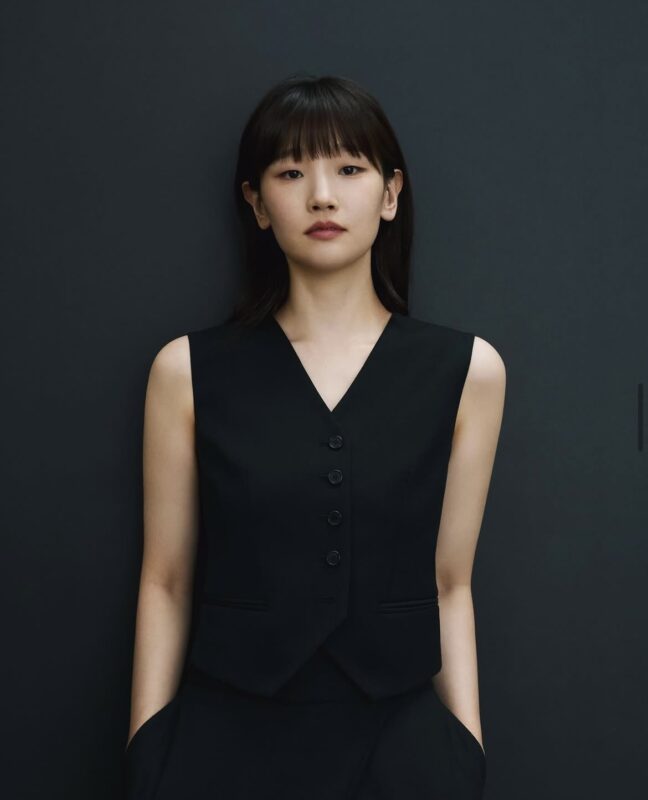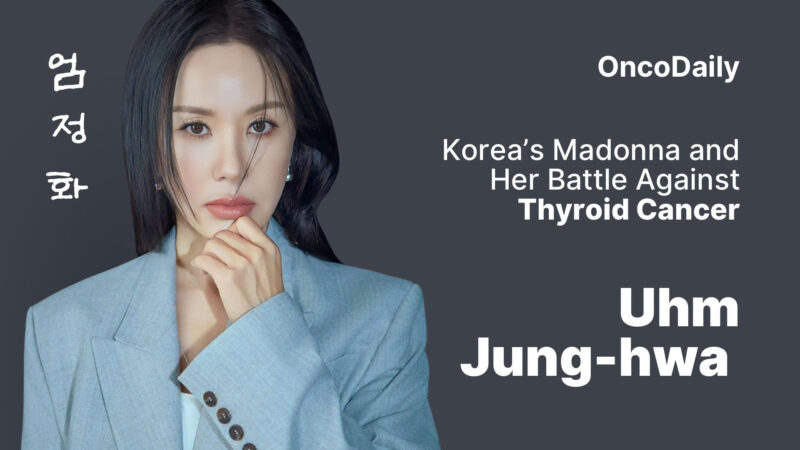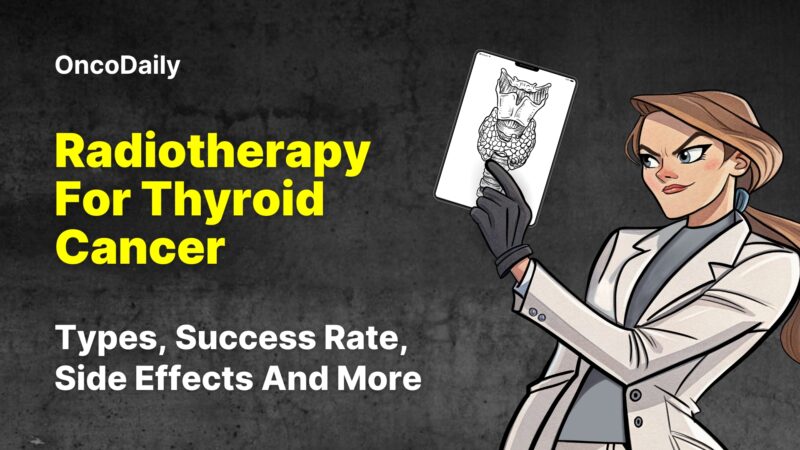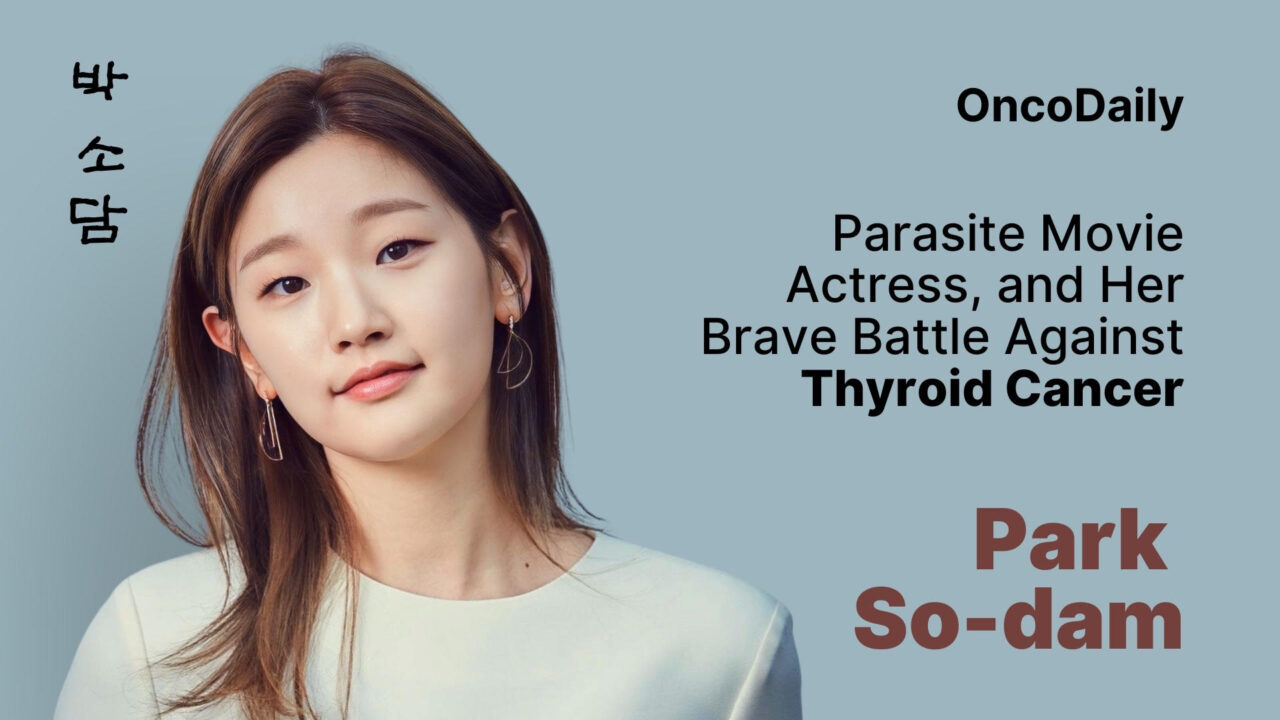Park So-dam is a celebrated South Korean actress known internationally for her versatile performances in film and television. She gained global recognition for her role in the Oscar-winning film Parasite (2019), which won Best Picture at the Academy Awards. Beyond Parasite, Park has delivered memorable performances in movies like The Priests (2015) and TV series such as Cinderella with Four Knights (2016) and Record of Youth (2020).

Photo: Park So Dam Instagram Account @imsodamm
In December 2021, Park So-dam was diagnosed with papillary thyroid cancer, a revelation that deeply moved her fans and the wider entertainment community. She underwent surgery and has since been open about her health journey. This article aims to share her inspiring story of courage and resilience, while raising awareness about thyroid cancer and the importance of early detection and treatment.
How Was Park So Dam Diagnosed with Thyroid Cancer?
In December 2021, during a routine health checkup, South Korean actress Park So Dam was diagnosed with papillary thyroid cancer, the most common form of thyroid cancer. This diagnosis came as a surprise and marked a significant turning point in her life and career. Following the diagnosis, she underwent surgery to treat the cancer, which required her to halt all planned promotional activities, including for her upcoming crime-action film “Special Delivery.” Her agency, Artist Company, announced that Park was very disappointed to miss the opportunity to be with her fans and promote the film, but emphasized her priority was now on recovery.
The immediate aftermath of the diagnosis and surgery was physically and emotionally challenging. Park So Dam experienced not only the physical difficulties associated with surgery and recovery but also emotional fluctuations. She shared that there were times during her recovery when she felt drained and emotionally depleted, likening it to being a “drained battery.” At one point, her ability to speak properly was affected, reflecting the physical impact of the thyroid surgery.

Photo: Park So Dam Instagram Account @imsodamm
Despite these hardships, Park found strong support and motivation from her family, the film’s director, and co-stars, which helped sustain her through the recovery period. The director of her later project, “Death’s Game,” showed understanding and gave her sufficient time to heal before filming, which encouraged her to return to acting even when she was still regaining her strength. Her co-star Seo In Guk was also notably supportive during filming, which helped her cope with the lingering emotional and physical ups and downs.
Park So Dam expressed deep gratitude for the overwhelming support she received from fans and colleagues during this difficult time. She reflected on the journey as transformative, stating that there was a time she couldn’t even get out of bed without assistance, but now cherishes the simple ability to move and be active. This period of her life gave her a renewed perspective on the preciousness and value of every day of life.
Return to Acting and New Projects
Park So Dam has openly reflected on her journey battling papillary thyroid cancer with deep gratitude and a newfound appreciation for life. She shared that during her recovery, there were moments when she felt like a “drained battery,” experiencing emotional fluctuations and physical exhaustion. At one point, she could barely get out of bed without her father’s help, which made her cherish the simple ability to move and live each day fully. This experience gave her a profound sense of the preciousness and value of every day. She cited a line from her drama “Death’s Game” that resonated with her: “Humans only die once for a long time,” emphasizing how life should be treasured.

Photo: Park So Dam Instagram Account @imsodamm
To her fans, Park So Dam sends a message of hope, resilience, and health. She expressed sincere gratitude for the overwhelming support she received throughout her illness and recovery. Despite the ups and downs she still faces occasionally, she finds strength in her work and support from colleagues, such as co-star Seo In Guk, who provided encouragement during filming. Her journey is a testament to overcoming adversity and the importance of understanding and kindness in difficult times.
Post-recovery, Park So Dam has adopted lifestyle changes that reflect her new outlook on health and well-being. After treatment, she took an extended break and traveled alone for over a month across Europe to rest, reflect, and regain strength. This time allowed her to reconnect with herself and her fans in a different way, as she was warmly welcomed abroad. She now prioritizes self-care and health, reflecting a shift from her previous, more hectic schedule. This transformation includes adopting a mindset that values each day and moment, focusing on mental and physical wellness.
In summary, Park So Dam’s reflections reveal a resilient spirit that finds strength in life’s fragility. Her message to fans revolves around cherishing health, facing challenges with courage, and valuing each day’s preciousness. Her recovery is supported by lifestyle changes that prioritize peace, rest, and self-care—embodying the lessons learned from her battle with cancer.
Reflections and Inspirational Messages
Park So Dam has shared her heartfelt reflections on the journey through thyroid cancer and the profound impact it had on her outlook on life. She revealed moments during her recovery when she felt like a “drained battery,” struggling emotionally and physically. At one point, she couldn’t even get out of bed without the help of her father, which made her deeply appreciate the simple ability to move and live each day. She found great meaning in a line from her drama “Death’s Game”: “Humans only die once for a long time,” which emphasizes the preciousness and value of every single day of life.
Her message to fans is one of hope, resilience, and gratitude. Despite ongoing emotional fluctuations and physical challenges after her surgery, Park So Dam draws strength from being on set and from the extraordinary support of her co-star Seo In Guk and others around her. She expressed sincere thanks for the overwhelming concern and encouragement from fans, saying this support motivated her during difficult times. She encourages others facing health battles to stay strong and value every day.
After her treatment, Park So Dam took a significant break for rest and self-reflection, traveling alone across Europe for over a month. This journey allowed her to reconnect with herself and her fans in a new way, experiencing their admiration firsthand. The time away helped her adopt a lifestyle that prioritizes health, self-care, and inner peace—shifting from her previously busy and social lifestyle to giving herself the time and space to heal.
She also shared that it took about eight months for her voice to fully return after the surgery, underscoring the long-term physical challenges she faced. Her experience has profoundly influenced how she now values wellness, teaching her to listen to her body more carefully and to embrace healing gently.
In summary, Park So Dam’s reflections reveal a resilient spirit who has come through adversity with a renewed appreciation for life’s fragility and strength. Her inspiring message to fans centers on health, resilience, hope, and the importance of cherishing each day. Post-recovery, she lives with greater mindfulness and self-care, embodying the lessons learned from her cancer battle.
You Can Also Read Uhm Jung-hwa: Korea’s Iconic ‘Madonna’ and Her Triumphant Battle Against Thyroid Cancer by Oncodaily

What Are the Main Risk Factors for Developing Thyroid Cancer?
Thyroid cancer risk factors can increase your chances of developing the disease. While having one or more risk factors doesn’t guarantee thyroid cancer, recognizing them can aid in early detection and prevention efforts.
Gender and Age
This type of cancer is significantly more common in women than in men, with women being about three times more likely to develop the condition. The disease can affect people of any age, but it is most commonly diagnosed between the ages of 30 and 60, particularly in women.
Family History and Genetics
A family history of thyroid cancer or certain genetic conditions can increase your risk. Key inherited conditions linked to thyroid cancer include:
- Multiple Endocrine Neoplasia type 2 (MEN2): Increases the risk of medullary thyroid cancer.
- Familial Adenomatous Polyposis (FAP): Often associated with papillary thyroid cancer.
- Cowden Syndrome: Linked to papillary and follicular thyroid cancer.
- Carney Complex: A rare condition that can lead to early-onset thyroid cancers.
If there is a history of these genetic syndromes in your family, consider genetic counseling and testing to assess your risk.
Radiation Exposure and Thyroid Cancer
Radiation exposure, especially during childhood, is a well-known risk factor for thyroid cancer. Individuals who received radiation treatments for other medical conditions early in life have a higher chance of developing thyroid cancer later on. Similarly, those exposed to nuclear fallout, such as during the Chernobyl disaster, are at increased risk. Even though the radiation from routine childhood imaging—like CT scans or X-rays—is much lower, frequent exposure over time may still contribute slightly to thyroid cancer risk.
Body Weight and Thyroid Cancer
Body weight can also influence the likelihood of developing thyroid cancer. Research has shown that being overweight or obese increases the risk, with the chances rising alongside a person’s body mass index (BMI). Obesity appears to be a contributing factor to both the development and progression of thyroid cancer, though the exact reasons for this link are still being studied.
Iodine Levels in Diet
The amount of iodine in a person’s diet plays a role in thyroid health and cancer risk. Low iodine intake has been associated with a higher chance of developing follicular thyroid cancer, while very high iodine levels may increase the risk of papillary thyroid cancer. In countries like the United States, where iodized salt is commonly used, iodine deficiency is rare. However, it can still occur in some regions or among people with restricted diets.
You Can Also Read Radiotherapy For Thyroid Cancer: Types, Success Rate, Side Effects And More by Oncodaily

What Is the Outlook for People With Different Types of Thyroid Cancer?
According to ASCO and related authoritative sources, the prognosis of thyroid cancer varies significantly depending on the type and stage of the disease:
- Differentiated Thyroid Cancer (DTC), which includes papillary and follicular types, generally has an excellent prognosis. Patients with radioactive iodine–sensitive DTC enjoy high survival rates. For those with radioiodine-refractory differentiated thyroid cancer (RAIR-DTC), the prognosis is worse, especially if metastatic, with median 5-year disease-specific survival rates around 60–70%. Early identification and intervention improve outcomes.
- Medullary Thyroid Cancer (MTC) has a more variable prognosis. Survival depends heavily on the stage at diagnosis: 10-year survival rates are approximately 100% for stage I, 93% for stage II, 71% for stage III, and drop to about 21% for stage IV. Genetic factors and extent of spread influence survival.
- Anaplastic Thyroid Cancer (ATC) is a rare and highly aggressive form with a poor prognosis. Median survival is around 5–6 months, with 1-year survival approximately 20%. Long-term survival beyond 2 years is rare but possible in a small subset. Prognosis is better for patients with resectable disease and multimodal therapy (surgery, radiation, systemic treatment). Age, tumor stage, and extent of spread are important prognostic factors.
Written by Aharon Tsaturyan, MD
FAQ
Who is Park So-dam and what is she known for?
Park So-dam is a South Korean actress internationally recognized for her role in the Oscar-winning film Parasite (2019) and other works like The Priests and Record of Youth.
When and how was Park So-dam diagnosed with thyroid cancer?
She was diagnosed in December 2021 during a routine health checkup with papillary thyroid cancer, the most common type of thyroid cancer.
What type of thyroid cancer did Park So-dam have?
She was diagnosed with papillary thyroid cancer, known for being the most common and usually treatable form.
What treatment did Park So-dam undergo for her thyroid cancer?
Park So-dam underwent surgery soon after diagnosis, which required her to pause her activities and focus on recovery.
How did the cancer diagnosis and surgery affect Park So-dam physically and emotionally?
She experienced physical difficulties including voice impairment, exhaustion, and emotional fluctuations, describing her recovery as feeling like a "drained battery" at times.
How did Park So-dam’s colleagues support her during her recovery?
Her director and co-stars, particularly Seo In Guk, offered understanding and encouragement, giving her time to heal and support on set.
What lifestyle changes did Park So-dam adopt post-recovery?
She prioritized health, rest, and self-care, including taking an extended solo trip across Europe to recover mentally and physically.
What is Park So-dam’s message to fans regarding her health journey?
She emphasizes hope, resilience, gratitude, and the importance of cherishing each day’s health and life.
What are the main risk factors for developing thyroid cancer?
Key factors include female gender, age (30–60 years), family history/genetics, radiation exposure, body weight, and iodine levels in diet.
What is the outlook for people diagnosed with papillary thyroid cancer?
Papillary thyroid cancer generally has an excellent prognosis, especially with early detection and treatment, with most cases being curable and having high survival rates.


